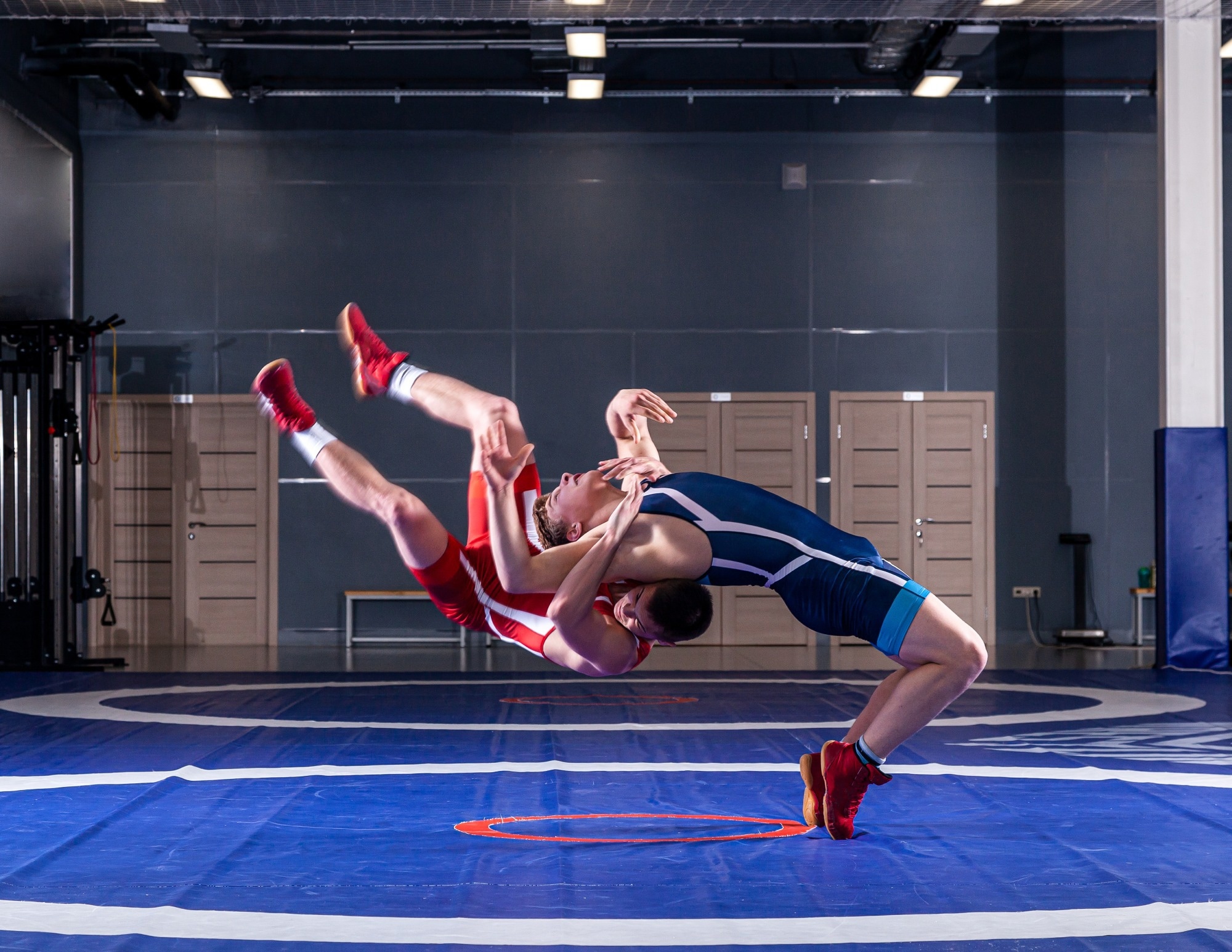In an article recently published in the journal Sports, researchers discussed the use of artificial intelligence (AI) in sports and its effectiveness. The study aimed to create an AI program to predict wrestlers' success, improving their selection process. The authors developed a specialized AI system for forecasting the performance of Greco-Roman wrestlers, analyzing data from 72 athletes across 36 traits.
 Study: AI Revolutionizes Athlete Selection in Wrestling. Image credit: Everyonephoto Studio/Shutterstock
Study: AI Revolutionizes Athlete Selection in Wrestling. Image credit: Everyonephoto Studio/Shutterstock
Utilizing neural networks along with machine learning, the study divided wrestlers into two groups: those meeting the highest standards in the sport and those who did not. Impressively, the program had only an 11% error rate in predicting wrestlers' competitive performance during testing. Moreover, it accurately classified traits into categories with 100% accuracy, identifying crucial factors influencing young wrestlers' future achievements.
Background
Information technology, AI, and big data have been integrated into various aspects of society, particularly in sports and physical education. Although there are conflicting viewpoints about the efficacy of using AI in sports, AI can be a valuable tool in predicting sports performance and guiding athletes in their careers. AI technologies also help in the field of sports medicine by creating predictive models that can predict and determine sports injury risk, help maintain health and performance of athletes using internal and external data.
The present paper highlights the impact of AI and big data on sports, including athlete selection, training, and performance analysis. The implementation of AI in sports could revolutionize how athletes are identified, trained, and managed, and it is important to conduct experiments to validate the effectiveness of these technologies in sports and to avoid negative consequences.
The goal of the study is to experimentally implement an AI program to predict athletes' sports results and improve sports selection and training processes. The hypothesis is that AI can enhance sports selection and training by providing insights based on big data analysis.
The Study
During an experimental study conducted from February to September 2022, the authors collected and processed personal data from 72 Greco-Roman wrestlers, including those from Glazov and Kazan in Russia, spanning the years 1988 to 2008. They also conducted social media and mobile surveys to collect data.
This data included information from their early wrestling careers and was categorized into three aspects: "Hereditary Data," "Sports Space," and "Individual Achievements." The authors developed an intelligent program using the Orange analytics system, incorporating deep networks and machine learning algorithms like "Logistic Regression" and "Random Forest" to predict athletes' competitive success.
The Orange analytical system is an open source machine learning program used for data visualization and statistical research, and has several analytical and research functions. Its Data Mining software utilizes visual programming via an easy-to-use graphical interface with many classification algorithms and analytical functionalities.Results and Discussions
The intellectual program for predicting wrestlers' competitive success was rigorously tested. It involved categorizing 36 traits in three areas: hereditary data, sports space, and individual achievements. Using AI technology, it accurately classified wrestlers into two groups: those achieving high sports ranks and those who did not. After additional training and validation testing, the program demonstrated an 11% error rate in forecasting competitive success, with only one error among wrestlers who did not achieve high sports results.
Notably, specific trait categories significantly influenced success. For instance, having a family member with an athletic title or being coached by experienced mentors increased success probabilities, while missing training or having low school grades reduced them. The program is ready for practical use, with clear trait categories affecting performance.
The study focuses on early sports selection for young athletes, aiming to identify traits that lead to successful performance in Greco-Roman wrestling. It employs a data-driven approach using taxonomic distance in a multidimensional space, combining hereditary data, sport-specific traits, and individual achievements to predict an athlete's potential. The research found that when at least three traits coincided in a category, there was a 100% success rate in predicting high-level performance, while one category match resulted in an 85% probability of success and 82% probability of failure.
The study underscores the potential of neural networks to enhance sports selection. This technology accurately identifies athletes likely to excel and those who may not meet the highest standards, providing valuable insights. It can be used to tailor training programs effectively, customizing and improving young wrestlers' training. AI integration in sports selection shows promise, potentially transforming talent identification and development in wrestling and other sports.
While the mathematical methods and AI programs are effective in enhancing sports selection accuracy, this study has limitations. It primarily focuses on "Sports Space" and "Individual Achievements," neglecting "Hereditary Data." Moreover, it exclusively analyzes Greco-Roman wrestling, limiting its applicability to other sports, particularly team sports. Nonetheless, the study's methodological recommendations have the potential to improve the individualized training process for young athletes, particularly those not suited for a wrestling career.
Conclusion
To sum up, the study introduces AI-driven big data technology into wrestling sports training, aiding in the prediction of novice wrestlers' competitive performance and identifying key traits affecting their future success. This author-developed program, validated with experimental data, enhances the quality of young wrestler selection and personalizes their training. It benefits coaches in youth sports schools and higher-level martial arts institutions, offering practical recommendations for data input and sports selection. Future research will expand to include other martial arts, refine algorithms, implement cross-validation, and focus on biomedical, psychological, and physiological data for more precise career predictions. This advancement holds promise for improving sports analysis and athlete selection in martial arts.